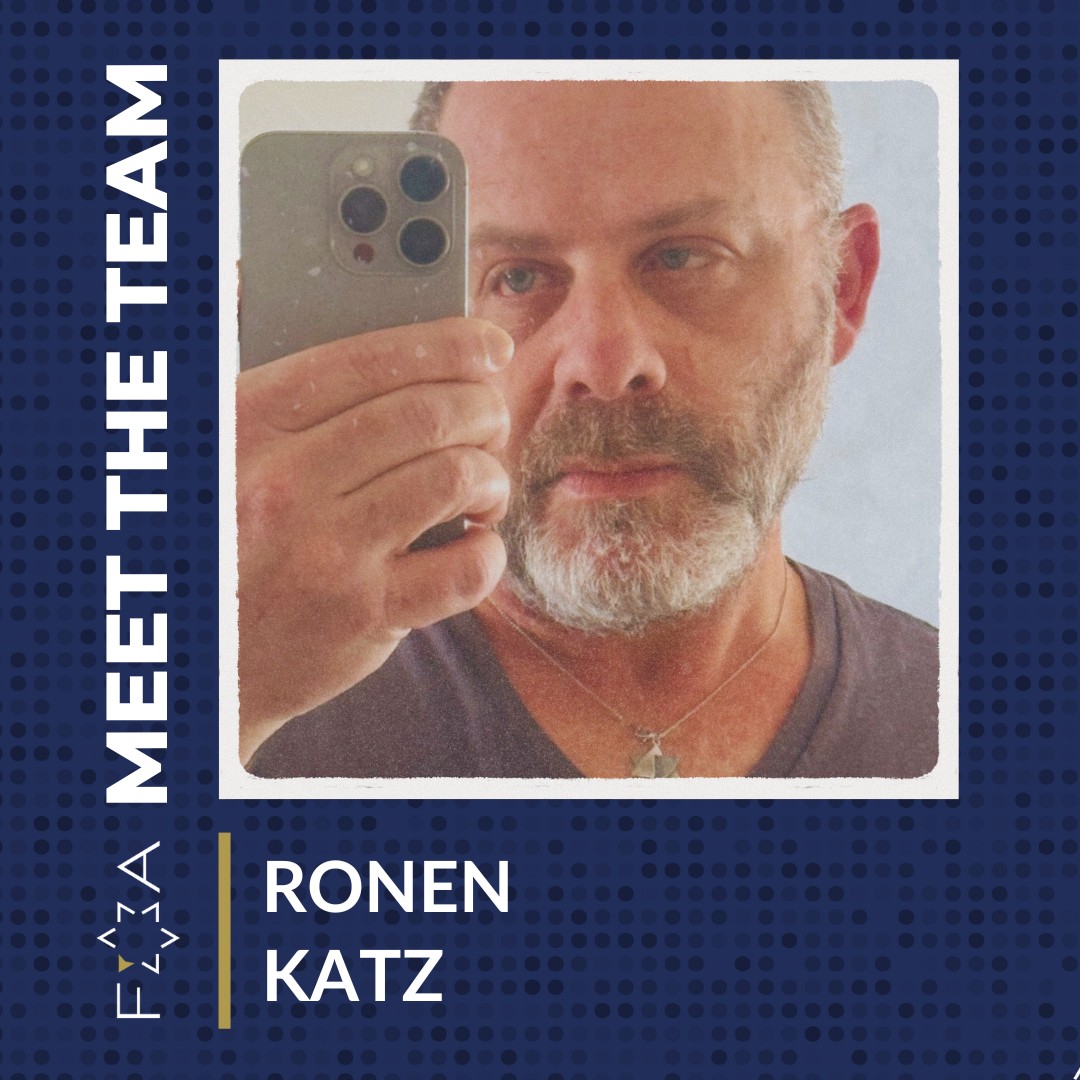Would you like to share a little about yourself and what led you to where you are today?
My name is Ronen, and I’m 52 years old. A year ago, I left my job to care for my father, who had cancer. I’ve had a turbulent life, full of crises and overcoming them. I’m very sensitive to injustice in society. I’m an Israeli, born and raised, Jewish, and a passionate Zionist — and I will always do everything in my power to defend Israel.
How did you first hear about Fighting Online Antisemitism, and what made you decide to get involved?
I joined a social site about four years ago that wasn’t supposed to have anything to do with politics. But after October 7th, I began seeing antisemitic and even Nazi posts. It changed the whole way I used the platform. Every time I saw something hateful, I responded.
An Israeli friend on that site told me about FOA — and that’s how I found you. October 7th changed my life, and since then, I promised myself that when I had the chance, I’d get involved and make an impact.
What does your day-to-day work as a volunteer on the monitoring team look like?
I think my involvement is probably less than some other volunteers. I’m not active on many social platforms — just X (Twitter). When I see antisemitic posts, I report them and share them with the WhatsApp group.
If X replies that the content “doesn’t violate the rules,” I raise it again in the group. And when X confirms that an account has been suspended, I share that too.
What motivates you personally to dedicate time and energy to reporting antisemitic content online?
Simply — to fight antisemitism as much as I can and to stand up for justice.
Coming from your background, what unique perspective do you bring to the fight against antisemitism and anti-Zionist hate?
For me, my fight comes down to my reporting. After October 7th, and after seeing all the demonstrations and how people respond even to clear evidence, I’ve realized that arguing with them — doing Hasbara — doesn’t always work for a private citizen like me. So I focus on action, on reporting.
Before joining FOA, how familiar were you with antisemitism and the ways it spreads online?
Very familiar.
Since joining, what has surprised you most about the patterns of hate you encounter online?
Probably how people who identify as right-wing or MAGA can be antisemitic too — especially if stories about outside funding, like from Qatar, are true. It shows how antisemitism can cross political lines.
What is the most difficult part of this work for you, and how do you cope with it?
Honestly, holding myself back from responding. I’m quite verbal, and sometimes it’s hard not to reply directly. What helps is remembering that I once got suspended when I reached 2,000 followers — so I don’t want that to happen again now that I’ve built back up to 760.
Also, I keep a “Nazis list” — it sounds odd, but adding accounts there helps me channel my frustration instead of reacting impulsively.
What do you hope will change in the online space in the coming years when it comes to antisemitism and hate speech?
If platforms would just enforce their own guidelines on antisemitism properly — and stop applying double standards toward Jews and Zionists — I’d be satisfied.
What message would you like to share with other people – from any background -about why this work matters and how they can take part?
This work makes a real difference. I’ve realized that an organization like FOA has more power and influence on platforms than any individual. Every person who joins strengthens that influence. So I encourage anyone who can — join us. Every action counts.
